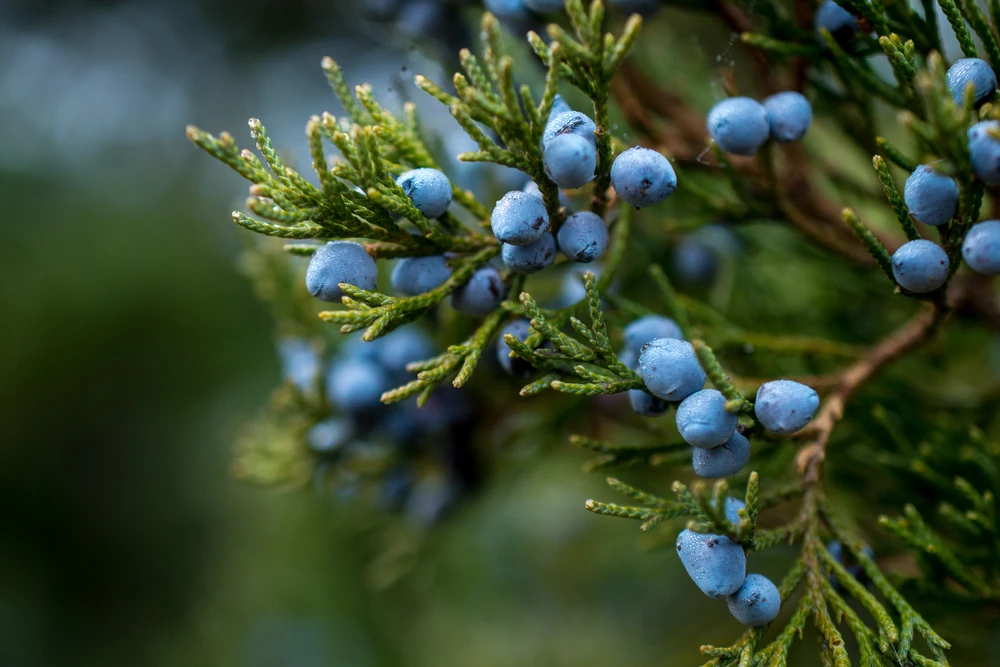In the plant world, few trees evoke the same sense of charm and ancient attraction as juniper trees. With their gnarled branches, aromatic foliage, and stable presence in landscapes across the globe, they represent resilience and beauty. However, given the vast diversity within this genus, identifying junipers can be challenging. In this blog post, Valley Arbor Care explores the specific characteristics of juniper trees and ways to differentiate between the various types that grace our planet.
Identification
Junipers belong to the genus Juniperus, encompassing over 60 species distributed widely across the Northern Hemisphere. Identifying juniper trees involves examining several key features including:
- Needles or Scales: Junipers typically have either needle-like or scale-like foliage. Needle-type junipers feature sharp, pointed leaves arranged in whorls along the branches, resembling miniature green needles. In contrast, scale-type junipers possess overlapping, scale-shaped leaves tightly pressed against the branches.
- Cones or Berries: The reproductive structures of junipers offer valuable clues for identification. Most juniper species produce small, berry-like cones known as “juniper berries.” These berries can range in color from green to blue-black and are often adorned with a powdery bloom. Some species may, however, bear fleshy cones resembling berries or woody cones with scales.
- Bark and Branches: Juniper bark varies in texture and color, ranging from smooth and reddish-brown to fibrous and grayish brown. Additionally, juniper branches often exhibit distinctive growth patterns, with some species developing twisted or contorted branches over time.
- Habitat and Geographic Range: Understanding the native habitat and geographic distribution of juniper species can aid in identification. Junipers thrive in diverse environments, including arid deserts, rocky slopes, and mountainous regions, with certain species adapted to specific climate conditions.
Types of Juniper Trees
Although there is a vast array of species that we could explore within the Juniperus genus, some of the most notable types include:
- Juniperus virginiana (Eastern Red Cedar): Native to North America, this species features scale-like foliage and produces bluish-purple berries. Eastern Red Cedar is prized for its aromatic wood and is commonly used in landscaping and as a windbreak.
- Juniperus communis (Common Juniper): Widely distributed across the Northern Hemisphere, Common Juniper is characterized by needle-like foliage and dark purple berries. It inhabits various habitats, from high mountain slopes to coastal dunes.
- Juniperus chinensis (Chinese Juniper): Hailing from East Asia, Chinese Juniper is celebrated for its ornamental value and diverse cultivars. It showcases a range of foliage colors, from deep green to golden-yellow, and adapts well to urban environments.
- Juniperus sabina (Savin Juniper): Native to Europe and Asia, Savin Juniper is renowned for its low-growing habit and aromatic foliage. It thrives in rocky, calcareous soils and is a popular choice for ground cover and bonsai cultivation.
- Juniperus scopulorum (Rocky Mountain Juniper): Endemic to the Rocky Mountains of North America, this juniper species boasts silvery-blue foliage and irregularly shaped cones. It plays a vital role in alpine ecosystems and is cherished for its rugged beauty.
In conclusion, juniper trees are highly captivating with their diverse forms, textures, and ecological significance. By enhancing our skills in identification and exploring the many different types of junipers, we can gain a deeper appreciation for these timeless botanical treasures.
At Valley Arbor Care, we are passionate about preserving the natural beauty of our surroundings while providing expert tree care services that are tailored to your needs. From tree trim service, pruning and maintenance, to disease management and planting, we offer comprehensive solutions to ensure the health and longevity of your juniper trees.
Contact Valley Arbor Care today to schedule a free estimate or consultation.


Add Comment